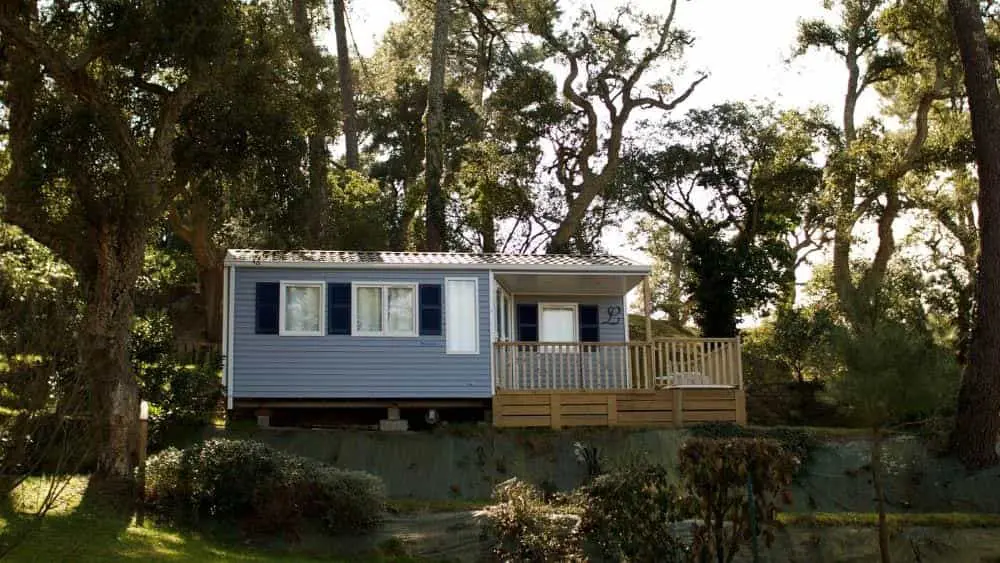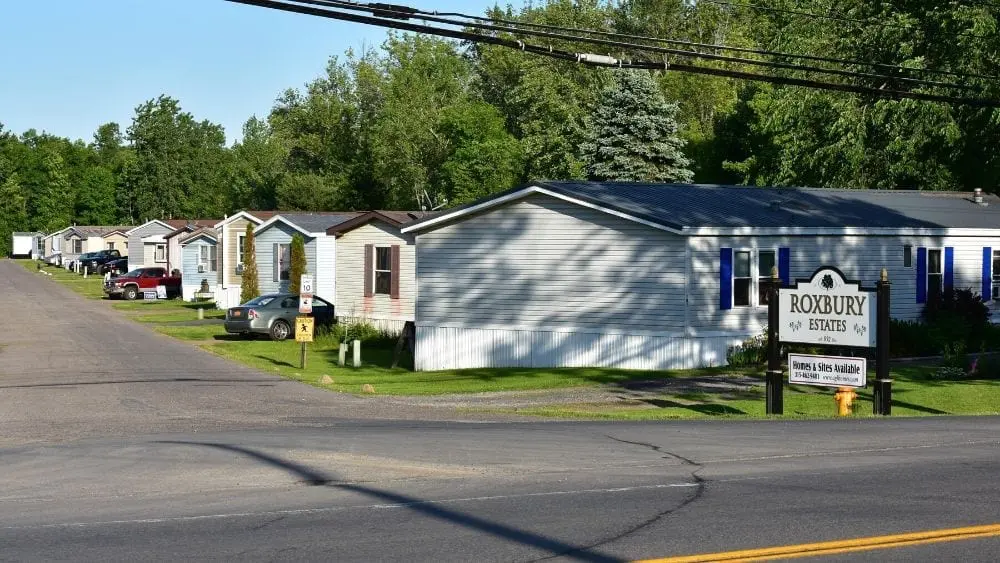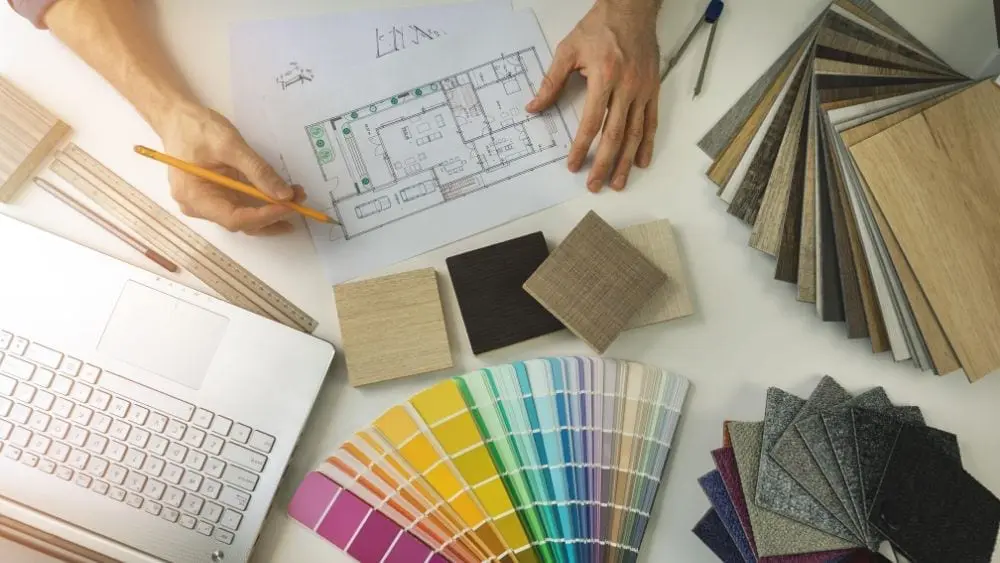
Manufactured homes have captured the imaginations of Millennials grappling with student loans, as well as Boomers looking to downsize for their next adventure.
The siren call of the manufactured home — affordability, customization and low maintenance — is attractive to anyone looking to escape the cost of a traditional single-family home, but needs more space than tiny houses offer.
Even though more people make manufactured and modular homes their home, home shoppers need to take these dwellings’ unique factors into consideration before they buy. Getting a mortgage for a manufactured home, choices about the land and home maintenance considerations all differ from traditional homes. This guide has all the information you need to know to make an informed decision about buying a manufactured or modular home.
What is a Manufactured Home?
Manufactured homes are prefabricated, built off-site in a factory and then transported to their final destination. Their construction is mandated by HUD code, and they’re the modern development of mobile homes. Manufactured homes can be placed on a temporary or permanent foundation – a distinct difference from their predecessors.
Buying a Manufactured Home
Financing a manufactured home differs from buying a single-family home or townhome. Lenders tend to consider manufactured homes personal property, not real estate. Historically, loans for manufactured and modular homes worked more like a car loan than a mortgage and required higher credit scores, higher down payments and higher interest rates.
Lenders views on helping home shoppers finance manufactured homes are changing. Today’s manufactured homes are of a higher quality than earlier manufactured homes, increasing the longevity of the dwelling. In turn, buyer interest has driven demand for more traditional home loans for manufactured homes. Government-insured loans, like HUD-backed FHA loans and VA loans, are financing options for manufactured or modular homes. Banks and home manufacturers offer more traditional chattel loans and mortgages to home shoppers as well.
Property conditions can affect the financing of a manufactured home. The chance of a homeowner getting a traditional mortgage and lower interest rates increase if the buyer invests in a quality home, owns their own land and fixes the home on a permanent foundation. The more “homey” a manufactured home is, the better the financing options are for the owners.
“Potential buyers should know, for most standard bank financing, they must meet certain criteria,” says Zachary Fugate, senior mortgage loan officer for Warsaw Federal Savings & Loan in Cincinnati, Ohio. “The manufactured home must be on a permanent foundation and the land (must be) titled as real property. Manufactured homes can be financed as a principal residence or a second home. Single-wide homes are not typically eligible for standard bank financing.”
Fugate adds that the HUD Data Plate must be on the home to be eligible for financing.
Land for Your Manufactured Home

Manufactured home builders know people want to live in a comfortable and beautiful space and offer luxurious fixtures and upgrades, such as granite counters and hardwood floors. Before buying a manufactured home, homeowners need to have land and a foundation to put their new house on, as the manufacturers do not sell the house with the land. Manufactured homeowners can place their new home on land leased from a manufactured home community or place their home on land they own.
Living in a manufactured home park provides families with a vibrant community, with fantastic amenities, to call home. Renting land helps lower the initial down payment needed to secure financing, but can make it harder to get a traditional mortgage. Renting land also forces homeowners into managing a mortgage, rent and a landlord.
Buying land to place a manufactured home may cost more upfront, and requires extensive research into local deed restrictions and zoning laws. Owning land can help secure a traditional mortgage and lower interest rates. Families are sheltered from the depreciation in the value of manufactured homes when they own the land it is placed on and can build meaningful equity in their home if the value of the land appreciates.
Homeowners must understand local zoning and deed restriction laws before buying land for a manufactured home.
“A manufactured home can generally be placed in any residential zone in any city or town as long as the chosen lot complied with applicable regulations for minimum lot area, lot width and lot depth,” says David Businelli, CEO of Studio 16 Architecture in Staten Island, N.Y., and who has designed a manufactured home development. “There may also be building code consideration that must be studied prior to deciding if a manufactured home will work on a lot.”
Businelli suggests contacting a local building professional to help with lot selection for a manufactured home.
Maintaining a Manufactured Home
Just like any other home, manufactured homes need tender love and care to ensure they remain a safe, long-lasting living space. Once placed on its foundation, inspect manufactured homes regularly for rust and leaks.
All caulking around vents and windows should get retouched as necessary. Apply durable roof coating and check the foundation once a year. Regular cleaning of siding, HVAC systems, gutters and interiors will keep manufactured homes comfortable and clean.
Designing a Manufactured Home

The design of manufactured and modular homes has come a long way from the long, dark trailers of yesteryear. Manufactured home exteriors can match any style, from traditional ranch homes to cozy log cabins to chalets to cool coastal retreats.
Inside manufactured homes, homeowners have complete freedom to design the beautiful home they love. Open kitchens with large islands and living rooms flow seamlessly into dining areas and nooks, while spacious bedrooms and master bathrooms provide a nurturing retreat.
Just like any other home, manufactured homes give homeowners a chance to express themselves through design and decor. Manufactured home builders know people want to live in a comfortable and beautiful space and offer luxurious fixtures and upgrades, such as granite counters and hardwood floors. Because manufactured home floor plans are designed to maximize space, homeowners do not have to sacrifice the furniture they love by having to fit into a tiny home or apartment.
When you buying a manufactured home, home shoppers need to do their research to ensure they make a wise investment in a home they will feel comfortable in. By understanding how to shop for, invest in and maintain a manufactured home, homeownership is closer than ever for many homebuyers.

After graduating in 2016 from The University of Texas with a degree in English, Sanda Brown became a content writer for the BDX with a focus on website copy and content marketing.
At the BDX, Sanda helps write and edit articles on NewHomeSource.com, writes website copy for builders, and manages a team of freelancers that work on additional content needs.
 How Much Square Footage Fits Your Family?
How Much Square Footage Fits Your Family?
Fatima Cordova
Can you help me to find the best manufactured home builder near me ?
Thanks
Jamie Garcia
Hi Fatima,
You can visit newhomesource.com and type your city or area into the search bar to find homes and builders near you!